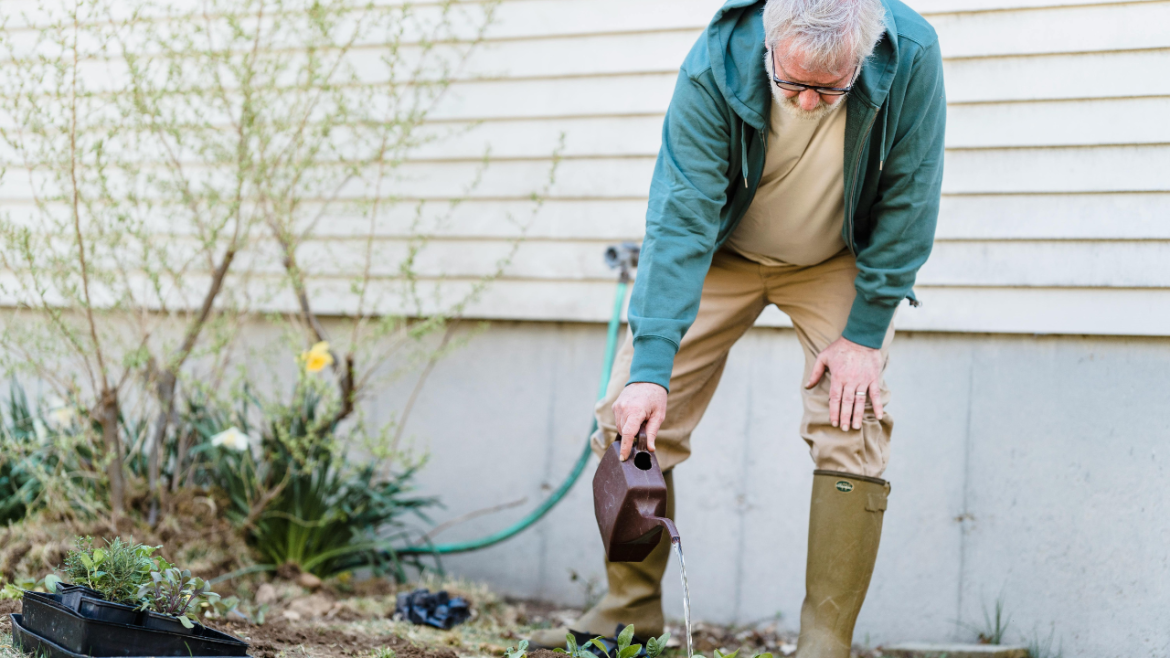Did you know that Leading Edge Senior Care has a Dementia Support Group? We meet monthly in Mesa. For more details <click here>
Gardening Ideas For Seniors
Gardening offers more than just a pastime for seniors; it provides a plethora of therapeutic benefits that contribute to overall well-being. Engaging in gardening activities can enhance physical health, cognitive function, and emotional satisfaction.
The nurturing process involved in gardening fosters a sense of purpose and accomplishment, which is particularly beneficial for seniors.
Container Gardening: A Convenient Option
For seniors with limited mobility or space, container gardening presents an accessible and convenient option. By using pots, hanging baskets, or raised beds, seniors can cultivate a variety of plants without the need for excessive bending or kneeling.
Container gardening not only allows for the cultivation of flowers and herbs but also enables seniors to grow their own vegetables, promoting a healthy lifestyle.
Adaptive Tools for Easy Gardening
Adaptive gardening tools play a crucial role in making gardening accessible to seniors with physical limitations. Tools with long handles minimize the need for bending, while lightweight and ergonomic designs reduce strain on joints and muscles.
Raised garden beds can be elevated to waist height, eliminating the necessity of stooping or kneeling. These adaptive measures empower seniors to continue enjoying the therapeutic benefits of gardening.
Designing Sensory Gardens
Sensory gardens are designed to engage the senses, making them particularly suitable for seniors with cognitive impairments or sensory sensitivities. Incorporating elements such as fragrant flowers, textured foliage, and wind chimes stimulates multiple senses, creating a calming and immersive experience. Seniors can delight in the sights, sounds, and scents of the garden, promoting relaxation and sensory stimulation.
Ensuring Accessibility with Well-Designed Pathways
Creating accessible pathways within the garden is essential for ensuring the safety and comfort of seniors. Clear, wide pathways allow for easy navigation, particularly for seniors using mobility aids such as walkers or wheelchairs.
Installing handrails along pathways provides additional support and stability for seniors with balance issues. By prioritizing accessibility, seniors can move around the garden confidently and independently.
Incorporating Raised Beds for Easy Access
Raised garden beds offer numerous benefits for seniors, including ease of access and better soil drainage. By elevating the planting area to waist height, seniors can tend to their plants without needing to bend or stoop, reducing strain on their backs and knees.
Additionally, raised beds provide better control over soil quality and moisture levels, promoting healthier plant growth.
Embracing Community Gardening Projects
Participating in community gardening projects provides seniors with opportunities for social engagement and connection with others. Working alongside fellow gardeners fosters a sense of camaraderie and belonging, promoting mental and emotional well-being.
Community gardens also offer access to shared resources and expertise, allowing seniors to learn and grow together with others in their community.
Cultivating a Love for Gardening at Any Age
Gardening is a timeless activity that can be enjoyed by individuals of all ages, including seniors. Whether it’s tending to a few potted plants on a balcony or participating in a community garden project, the joys of gardening are accessible to everyone.
By embracing gardening as a hobby, seniors can reap numerous physical, mental, and emotional benefits while nurturing their connection to nature and community.

